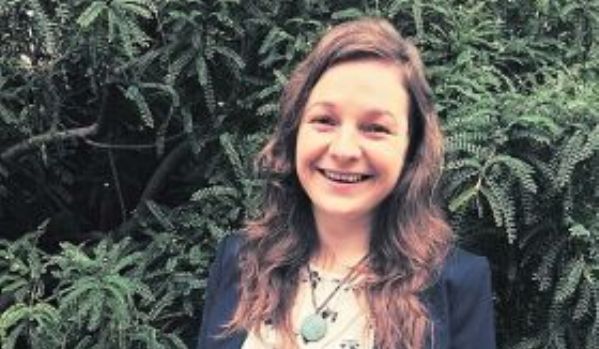Waikato University news
Isa Ritchie’s family is rich with academic tradition. Two of her grandparents, James and Jane Ritchie, were professors at the University of Waikato and her mother Jenny first studied then lectured at Waikato for 17 years. Isa’s great grandparents Pearl and Ernest Beaglehole were also academics, based at Victoria University of Wellington.
This month Isa is graduating with her PhD and her overseas examiner said Isa’s thesis was one of the best she’d read in over 30 years.

“I practically grew up on the University of Waikato campus,” Isa says. “As a child my grandmother would take me to feed the ducks at the lakes while my mother studied, and when I was older I spent a lot of time on sick days and school holidays around the School of Education where my mother worked. My grandfather, James Ritchie, started the Psychology Department at Waikato in the ‘60s and was responsible for the planting of the redwoods outside IJK blocks; in his words, ‘to hide the ugly buildings’.”
Isa’s PhD thesis is titled ‘Shared Lunch: An Ethnography of Food Sovereignty in Whaingaroa and Beyond’. It’s an ethnographic study focussed around local food providers in Whaingaroa (Raglan) and other settings in New Zealand, exploring the complex interconnectedness of food and its links with the social and political, values and practices, tradition and innovation, wealth and poverty, at global, local and personal levels.
“I looked at the culture, customs, habits, and differences of alternative food networks, mostly based in the Raglan area where there’s a community of small-scale local food providers,” Isa says.
It’s relevant research
Isa spent time with, and interviewed local food providers who have opted out of the mainstream food system, finding out how they operated, the issues they faced to establish and sustain their operations, and how they overcame their challenges, often finding alternative solutions to conventional economic systems.
“I worked with a cross-section of people and businesses and non-profit initiatives. They included community gardens, small-scale organic and permaculture farms, and other community groups and businesses focussed on producing and distributing local food, such as cafes and bakeries, as well as those minimising waste and environmental harm.”
What Isa found was that small-scale local food initiatives are often connected. “I found that the economics of local food systems is dependent on relationships and trust, which means that shared resources, land for example, can enable people to grow and share food and experiment with new ways of doing things. They showed what’s possible and achievable even with minimal resources.”
Emeritus Professor Ritchie will be attending Isa’s graduation and says she’s extremely proud of her granddaughter. “Her research is relevant, and I think will become more so as people become much more conscious about food safety, security and food waste. As Isa worked through her doctorate, I enjoyed hearing her talk about her research and writing, and I couldn’t help comparing it with my PhD done back in the 1950s.”
Meanwhile, after years of study, Isa is living in Wellington with her 9-year-old daughter Tesla, working in public policy for the Ministry of Business, Innovation and Employment. “I’m also writing,” she says. “My novel Fishing for Maui will be published next year and has food related themes that draw on my doctoral research.”
Isa Ritchie is graduating on December 11 at Te Kohinga Mārama Marae on the Hamilton campus at 10am.
